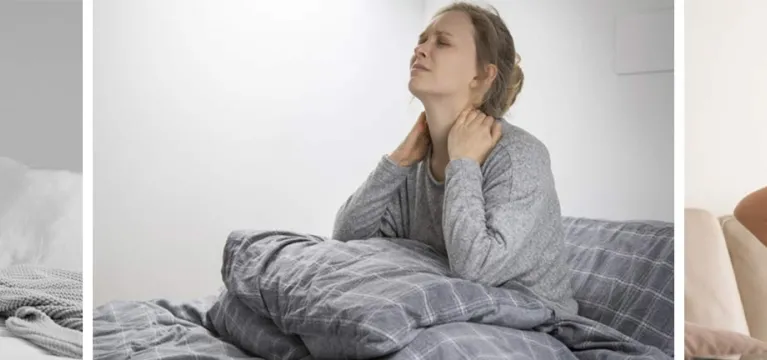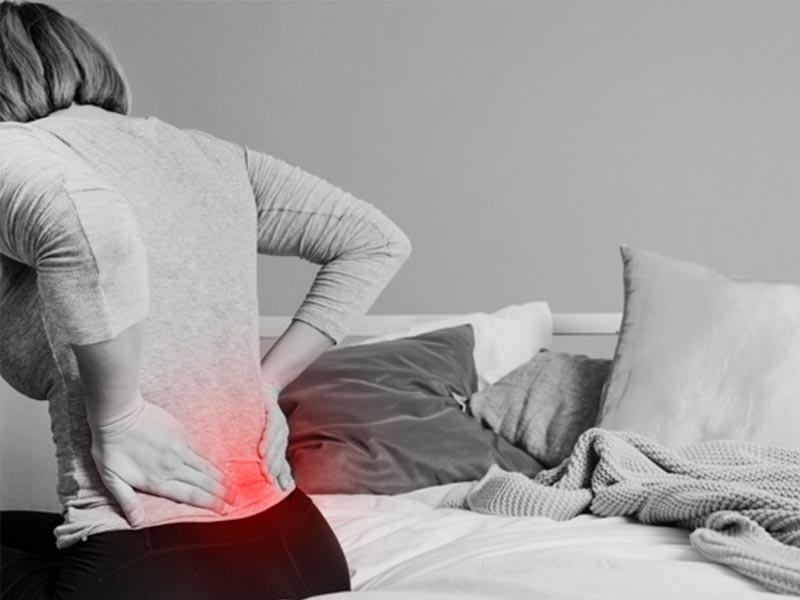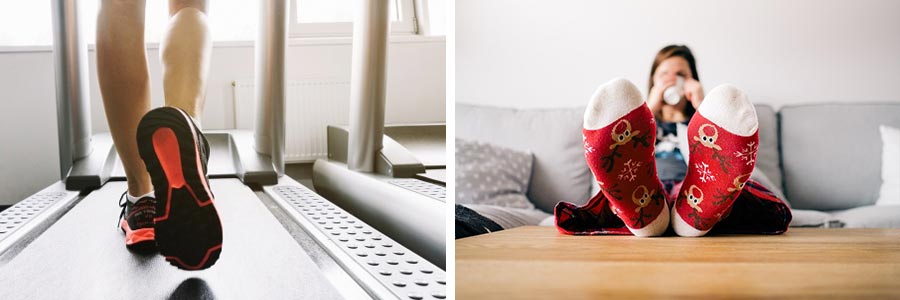

Do you find you regularly wake up stiff, sore or achy? We all want to wake up with our body and mind feeling fresh, rested and ready to take on the day but a lot of us find that we are aching in the mornings as soon as we get out of bed.
There may be a lot of reasons why you feel this way and we’ve listed some of the main causes for you here.
Inflammation:
Inflammation is a side effect of our bodies healing process in repairing cells and tissues so is sometimes a necessary physical reaction and needed for our body to stay healthy. However, chronic inflammation is bad for us and can cause us to feel stiff and achy even after a night’s sleep. There are many causes of inflammation including disease and injury. Inflammation is also common in getting older as the body releases more of the C-reactive protein that cause inflammation as we get older.
We can combat inflammation by keeping as physically and mentally healthy as possible with regular exercise, a good diet, management of stress and keeping at a healthy weight. As we get older, it is also important to keep checks on our health with regular doctors’ appointments.

Your bed
Your bed is the first place to investigate If you are having problems with achiness in the mornings. As good quality sleep is imperative to our health and well being (check out our guide on getting the perfect night’s sleep ) the comfort and quality of our bed is very important.
Firstly, our mattress should allow us to sleep comfortably while still being fully supported. Support and relief at pressure points is specifically important and our choice of mattress should be made with not only comfort preference but also support the way we sleep. A mattress being too firm or too soft can cause pressure on our joints and lead to aches and pains when we wake up.
Sleeping position has a significant effect on our mattress decision and you can find out the perfect mattress for your sleeping position in our handy guide.

Your mattress should also be good quality. A worn-out mattress can lose it’s support so it is important to make sure your mattress isn’t past it’s sell by date.
Our choice of pillow can also cause us to have aches and pains if we don’t have the right one. Having too many pillows or pillows that are too thick or too thin can cause the spine to be out of alignment and lead you to feel sore or stiff. Like mattresses, pillows also lose their support and need to be replaced regularly. Guide to buying bedding.
Not sure your bed or bedding is right for you? The Bed Experts at our Bristol Bed Showroom and Cirencester Beds Department can help you find the perfect product for you.
Diet:
Our diet is not only important to our overall health and wellbeing but to managing inflammation and achiness. ‘Cleaning up’ our diet can be a big factor in preventing aches and pains. Foods that contain excessive unhealthy fats or sugars can cause the symptoms of inflammation to get worse – so keep an eye on your diet and whether you’re consuming too many fried, processed or sugary foods. Foods such as vegetables, fruits, nuts fibre-rich whole grains, and wild-caught fish have been proven to be anti-inflammatory so making swaps in your diet can cause a big difference in feeling less sore and achy

Exercise:
A key culprit in causing us to ache, regularly or excessively exercising is a common cause of muscle soreness or skeletal stiffness. When you exercise, your body is put under stress and muscle fibres are broken down so that they can repair to be bigger and stronger. This can lead to the onset of DOMS – the Delayed Onset of Muscle Soreness – usually occurring around 24-72 hours after your workout. While some soreness after exercise is inevitable and the soreness will subside eventually, there are ways to limit this by making sure you warm up thoroughly before and stretch effectively afterwards. Over exercising and intensely exercising can cause the symptoms to worsen as your body needs time to repair and recover so make sure you’re not overdoing it!
On the other hand, a lack of exercise can also cause us to wake up feeling achy and sore. Regular exercise has been found to limit inflammation and is a great way to help improve sleep in the night and increase our energy during the day. The exercise doesn’t need to be excessive or overly intense either – aim for some sort of activity for 30 minutes per day, 5 days a week.

As summer is approaching, the sun is finally starting to make its way through the clouds and we can move into our gardens and enjoy having people o...